The prestigious British journal Journal of Neuropsychology of the British Psychological Society has published a study that shows that NeuronUP predicts the risk of experiencing cognitive decline one year in advance.
NeuronUP, as demonstrated by the study ‘One-year prediction of cognitive decline following cognitive-stimulation from real-world data’, published in an issue of the British journal Journal of Neuropsychology, predicts the risk of experiencing cognitive decline one year in advance.
This system is based on multiple tests performed by users that involve various areas of the brain (cognitive training materials). Based on their results, they alert to the possibility of developing a problem in the future or not. Predicting degeneration allows health professionals to intervene to delay or alleviate progression in conditions such as Parkinson’s or Alzheimer’s.
Delay or alleviate progression in conditions such as Parkinson’s or Alzheimer’s
Regarding its applications, Ikerbasque professor at the Biocruces-Bizkaia Institute and head of NeuronUP’s R&D&I unit, Jesús M. Cortes, has emphasized that “anticipating these kinds of situations allows taking early action to stop the progression of possible conditions; designing prevention programs and personalized treatment; monitoring progress over time to evaluate treatment effectiveness; identifying modifiable risk factors; developing interventions to reduce risk; and helping professionals make informed decisions”.
What the study involved
This study, which questioned the usefulness of the neuropsychological training materials of the NeuronUP platform, consisted of a longitudinal modeling of the results of 124,610 tests that monitored 29 cognitive domains. The research involved 7,902 people.
The risk of cognitive decline was evaluated based on performance (using an indicator called NeuronUP Score) that participants showed in the different platform tests. This system, as Cortes explained, “consists of a score from 0 to 100 that measures users’ progress. It is unique to each participant and is calculated by a formula that combines correct answers, the time taken to complete the challenge and its difficulty level”.
This research was conducted under a ‘Real World Data’ (RWD) system
Finally, it should be noted that this research was developed under a ‘Real World Data’ (RWD) system that mixes data from health records, online platforms, insurers, etc.
“This methodology offers a more precise and generalizable view of how a treatment or intervention behaves in the real population, which allows better characterization of populations and a greater understanding of the interactions between treatments and comorbidities”, Cortes said.
The media report on the NeuronUP study
Prestigious outlets such as Neurologia.com, Psiquiatria.com, Farmaco Salud, Europa Press or Salud a Diario have covered the publication of this study in the prestigious British journal.
- News on Neurologia.com.
- Article on Psiquitaria.com.
- News on Salud Diario.
- Farmacosalud publishes a news story about the study.
- Article on Geriatricarea.
- El Debate covers the study.
- Docs News also highlights the importance of the study on cognitive decline.
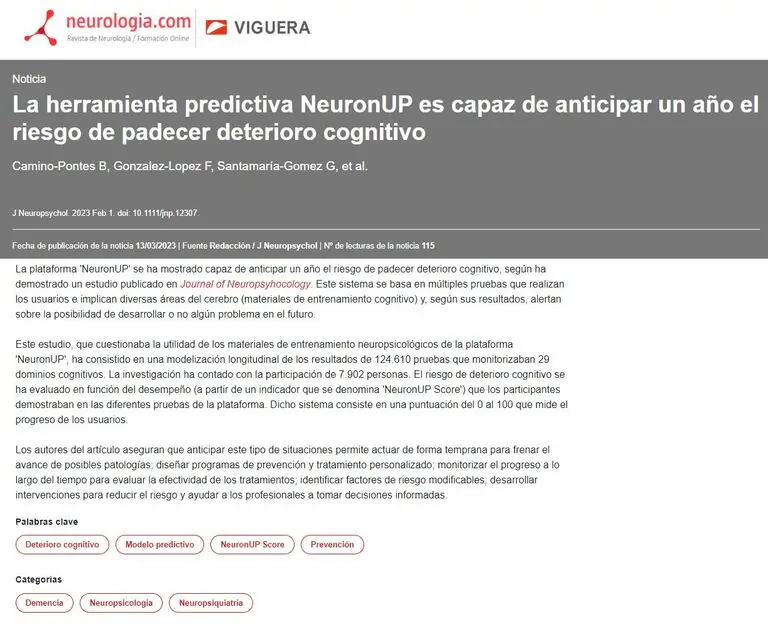


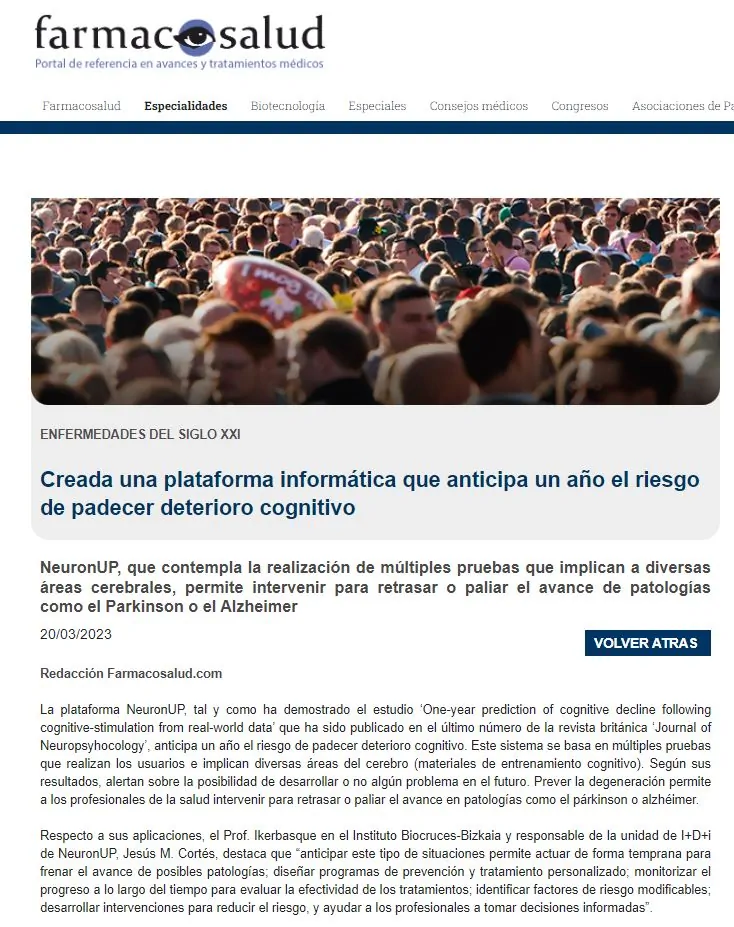
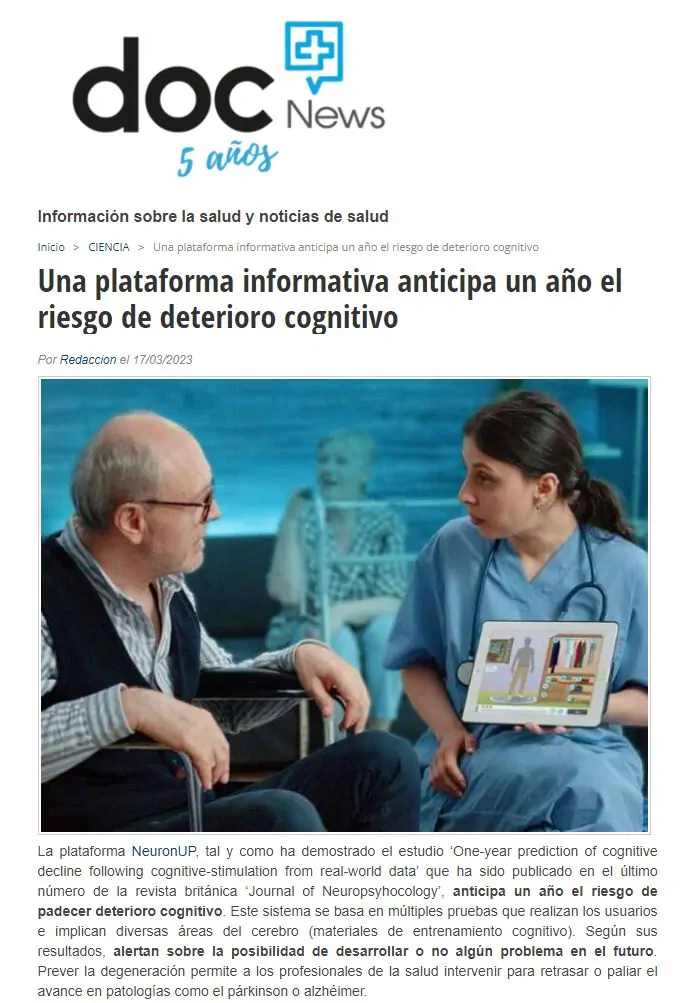
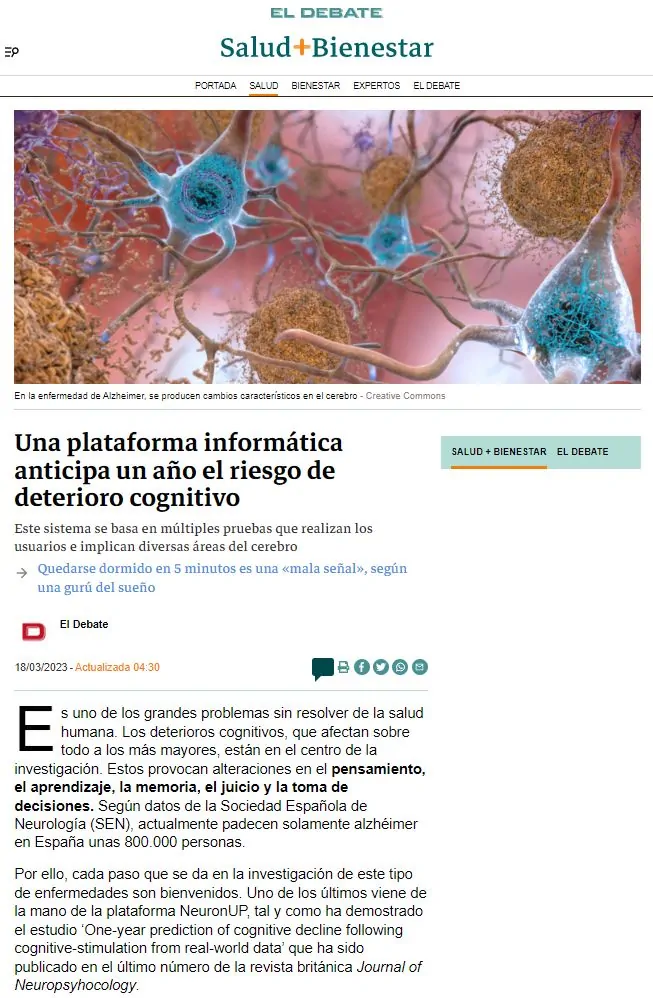
If you liked this blog post about NeuronUP predicts the risk of experiencing cognitive decline one year in advance, you will probably be interested in these NeuronUP articles:
“This article has been translated. Link to the original article in Spanish:”
NeuronUP anticipa un año el riesgo de padecer deterioro cognitivo


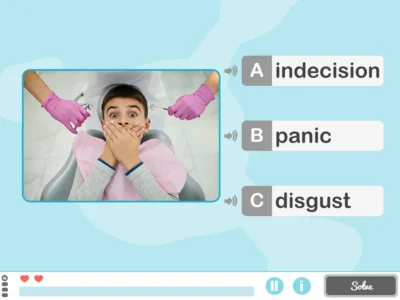




 Game to Develop Processing Speed in Children: Racing with Partners
Game to Develop Processing Speed in Children: Racing with Partners
Leave a Reply